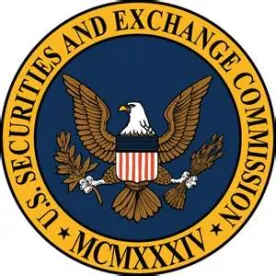On April 7, 2016, the U.S. Securities and Exchange Commission (SEC) approved a rule proposed by the Financial Industry Regulatory Authority (FINRA) that would require algorithmic trading developers to register as securities traders, in a move the regulators believe is designed to reduce market manipulation.
The Approved FINRA Rule
The rule requires all persons to register as “Securities Traders” if they are associated with a FINRA member and are primarily responsible for the design, development, or significant modification of algorithmic trading strategies or are responsible for supervising or directing such activity. These persons also must pass a qualification exam and will be subject to continuing education requirements. By requiring this minimum standard of knowledge, the SEC and FINRA hope to ensure that developers are properly educated in securities rules and able to assess whether the products they are designing to implement trading strategies comply with applicable regulations. FINRA believes this will reduce problematic market conduct, such as a failure to check for order accuracy, inappropriate levels of messaging traffic, and inadequate risk management controls.
The rule defines “algorithmic trading strategies” as automated systems that generate or route orders and order-related messages, such as cancellations. Examples of algorithmic trading strategies include automated arbitrage strategies, programs that divide large orders into smaller orders less likely to result in market impact, strategies that create or liquidate baskets of securities, and trading strategies that generate orders for alternative trading systems or other internal order matching engines. Standard order routers and algorithms that only generate trading ideas or investment allocations, but are not equipped to automatically generate and send orders and order-related messages into the market, would not fall under the definition of an algorithmic trading strategy.
Not everyone involved in the development of an algorithmic trading strategy is required to register under the rule. The registration and exam requirements are limited to those individuals who are primarily responsible for the design, development, or significant modification of an algorithmic trading strategy, or supervision of such activities. In this way, the rule targets only key persons, not everyone involved in the design and development process. For example, junior developers who write code solely to implement design or modifications at the direction of another would not be considered “primarily responsible,” and therefore would not be required to register.
The rule was originally proposed by FINRA in March 2015. In the order approving the rule, the SEC stated that it had received only one comment letter, which supported the FINRA proposal.
Implications of the FINRA Rule
The new rule is designed to increase the scope of trading information that FINRA receives, provide market participants and investors with more transparency into trading activities, and require employees at firms engaged in electronic trading to be trained, educated, and accountable for their role in algorithmic trading strategies. However, it also poses challenges to member firms that employ algorithmic trading strategies. The registration of an additional group of employees under the new FINRA rule adds additional costs and imposes a regulatory burden on these firms. FINRA member firms will be required to designate a principal responsible for supervising algorithmic trading strategy activities, and will need to develop policies and procedures to monitor compliance with the rule.
This approved rule is not the only recent attempt to increase regulation of high-frequency trading. The SEC has proposed rule changes that would require high-frequency proprietary traders to become members of FINRA, thereby increasing regulation of broker-dealers engaged in off-exchange trading activities, and increasing costs for affected firms. This proposal is still pending while SEC staff reviews comments submitted last year. The Commodity Futures Trading Commission (CFTC) also has proposed new rules with new CFTC registration requirements and controls for firms that engage in automated and algorithmic trading on the futures markets.
FINRA must publish its final rule by June 6, 2016, and the rule will take effect no sooner than 180 days after the publication. The SEC stated in its order approving the rule that it also expects FINRA to provide more detailed guidance in connection with the implementation of the registration requirement.
Krista M. Hess is co-author of this article.


 />i
/>i
